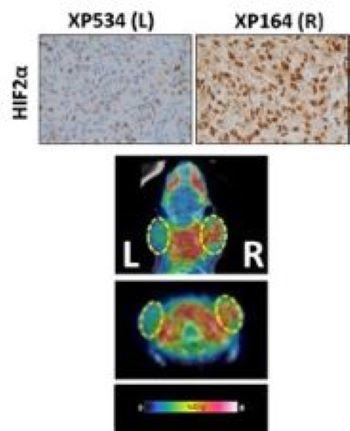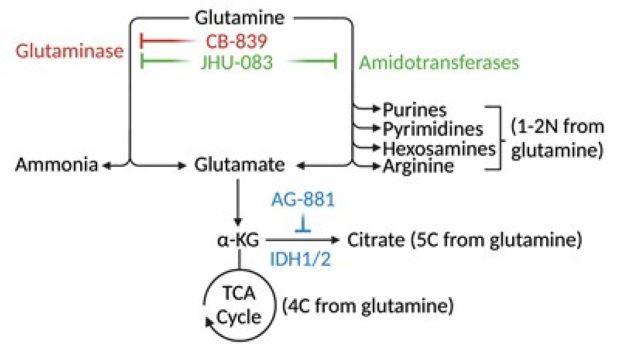University of Texas Southwestern Medical Center
Principal Investigators
James Brugarolas, M.D., Ph.D.
Director, Kidney Cancer Program
Professor, Department of Internal Medicine, Hematology-Oncology Division
Cancer Biology, Genetics, Development & Disease
Sherry Wigley Crow Endowed Chair in CA Research
University of Texas Southwestern Medical Center
5323 Harry Hines Blvd.
Dallas, TX 75233
214-648-4059
Payal Kapur, M.D.
Director, Genitourinary Pathology
Professor, Department of Pathology & Urology
Brock Fund for Medical Science Chair in Pathology
Jan and Bob Pickens Distinguished Professorship in Medical Science
University of Texas Southwestern Medical Center
5323 Harry Hines Blvd.
Dallas, TX 75233
214-633-6363
Overview
Kidney cancer was expected to have been diagnosed in over 75,000 individuals in the US in 2022. It is particularly prevalent in Texas. Approximately 30% of patients develop metastatic disease, and while survival rates are improving, today most patients still succumb to their disease. To address this unmet medical need, the UT Southwestern Medical Center Kidney Cancer Specialized Program of Research Excellence (SPORE) has developed a comprehensive program to explore and translate therapeutic opportunities in three major areas: oncogenic pathways, metabolism, and immunology.
- Project 1: Targeting HIF2 in Renal Cell Carcinoma
- Project 2: Defining Targetable Metabolic Dependencies in Human Renal Cell Carcinoma
- Project 4: Translational immunology platform for biomarker prediction and immunotherapy development
A Career Enhancement Program and a Developmental Research Program expand this reach. A forward-looking Administrative Core serves as a hub. The Biospecimen and Pathology Resources Core brings to bear one of the largest and most sophisticated Renal Cell Carcinoma (RCC) tumor banks and expertise supporting international efforts. The Data Analytics Core assists with statistical support, bioinformatics, and data management with an avant-garde tool that automatically extracts information from the electronic medical record and links this information to experimental genomics and the tumor bank. The Translational Imaging Core delivers useful technologies, including innovative IND-holding radiotracers, and unparalleled expertise.
Building upon the Simmons Comprehensive Cancer Center Kidney Cancer Program and its history of collaborative, interdisciplinary cancer research, SPORE Projects and Cores provide an engine of discovery, innovation, and translation. They support national and international efforts to advance patient care, research, and education.
Project 1: Targeting HIF2 in Renal Cell Carcinoma
Project Co-Leaders
- James Brugarolas, M.D., Ph.D. (Clinical Project Co-Leader)
- Xiankai Sun, Ph.D. (Basic Project Co-Leader)
Hypoxia-inducible factor 2α (HIF2α) is arguably the most important driver of kidney cancer. It was discovered at UT Southwestern Medical Center (UTSW) and is regarded as undruggable. Structural studies have revealed a vulnerability that was exploited through a chemical screen, leading to the identification of small molecule inhibitors. The discovery of these inhibitors led to the founding of a biotech company hosted in the UTSW BioCenter, Peloton Therapeutics, Inc., which developed several analogues (PT2385, PT2399 and PT2977). During the previous funding cycle, we showed that PT drugs disable HIF2 in kidney cancer preclinical models, as well as in patients. We also identified molecular mechanisms of resistance. The success of the program culminated with the vertical collaboration of the acquisition of Peloton Therapeutics by Merck and approval by the FDA of a first-in-class HIF2α antagonist, PT2977 (also called belzutifan). During the next funding period, we will focus on the development of second-generation inhibitors as well as molecular imaging probes that can be deployed as predictive biomarkers.
Project 2: Defining Targetable Metabolic Dependencies in Human Renal Cell Carcinoma
Project Co-Leaders
- Ralph J. DeBerardinis, M.D., Ph.D. (Basic Project Co-Leader)
- Kevin Courtney, M.D., Ph.D. (Clinical Project Co-Leader)
This project will study metabolic reprogramming in kidney cancer and explore therapeutic targets in tumors and their microenvironment. Leveraging activities from the previous funding period, including pioneering intraoperative infusions of 13C-labeled nutrients in kidney cancer patients and the In Vivo Metabolism Lab, we will focus on glutamine dependencies. While glutamine is an attractive therapeutic target, the glutaminase inhibitor CB-839 previously showed limited efficacy in clinical trials. We have identified mechanisms to explain the lack of activity and new opportunities for intervention, which we will explore in this next funding period.
Project 4: Translational immunology platform for biomarker prediction and immunotherapy development
Project Co-Leaders
- Tao Yue, Ph.D., (Basic Project Co-Leader)
- Payal Kapur, M.D. (Clinical Project Co-Leader)
Project 4 aims to create a cutting-edge translational immunology platform for biomarker discovery and immunotherapy development. While immune checkpoint inhibitors (ICIs), such as ipilimumab/nivolumab (ipi/nivo), have shown promise, only 40% of patients respond. Using unique resources from the UT Southwestern Kidney Cancer SPORE, this project will focus on identifying predictive biomarkers of resistance to ICIs and developing immunotherapy strategies for unresponsive patients. We will leverage our live tumor bank with samples from approximately 100 patients treated with ipi/nivo to develop an assay that predicts responsiveness.
In addition, we will deploy our tumor-infiltrating lymphocyte (TIL) program and our humanized RCC tumorgraft mouse models with autologous immune systems to test novel immunotherapy approaches. These include an immunocytokine we developed that combines pembrolizumab with an enhanced IL-2 variant. This immunocytokine is designed to localize IL-2 delivery, improve efficacy, and reduce systemic toxicity. By integrating innovative treatments with predictive biomarkers in state-of-the-art assays, Project 4 aims to personalize RCC therapy optimizing thereby patient outcomes.
Administrative Core
Core Co-Directors
As the coordinating hub of the SPORE, the Administrative Core provides essential services and organizational support. With the goal to promote collaborative, interdisciplinary research to translate discovery and technical innovation at UT Southwestern Medical Center, the Administrative Core serves as a vehicle for integration and is a cornerstone of the SPORE.
Biospecimen and Pathology Resources Core
Core Co-Directors
Leveraging one of the most comprehensive and sophisticated clinically annotated kidney cancer tumor banks, the Biospecimen and Pathology Resources Core supports SPORE projects, the CEP and DRP, as well as national and international collaborations. This includes not only fresh-frozen, but also live tumor samples for more than 1,700 racially and ethnically diverse patients and a tumor graft resource of more than 200 independent lines.
Data Analytics Core
Core Co-Directors
The Data Analytics Core brings together a team of experienced professionals to assist with biostatistics and bioinformatics methodologies, as well as data management. Core investigators support the SPORE by ensuring sound methodology, rigor, and reproducibility. They tailor new methodologies and provide an ever-expanding data management platform linking clinical information, experimental genomics, and the tissue bank.
Translational Imaging Core
Core Co-Directors
The Translational Imaging Core is a technologically advanced, state-of-the-art Core characterized by the breadth of its scope and versatility. During the prior funding period, this Core advanced novel applications of multiparametric MRI to evaluate tumor aggressiveness, angiogenesis, and tumor heterogeneity. During the current funding period, the Core will support SPORE investigators through the development of innovative radiotracers (2 FDA INDs) to query oncogenic drivers as well as tumor/microenvironment interactions using positron emission tomography (PET).
Developmental Research Program
Program Co-Directors
- James Brugarolas, M.D., Ph.D. (Program Director)
- Denise K. Marciano, M.D., Ph.D. (Program Co-Director)
The Developmental Research Program (DRP) provides seed funding for promising research projects with translational projection that have the potential to significantly impact kidney cancer research. The DRP funds pilot and/or high-impact/high-reward projects using innovative approaches that can generate groundbreaking discoveries. It serves as a “pipeline” of multidisciplinary and potentially game-changing projects to support the mission of the SPORE.
Career Enhancement Program
Program Co-Directors
- Payal Kapur, M.D. (Program Director)
- Maralice Conacci-Sorrell, Ph.D. (Program Co-Director)
The Career Enhancement Program (CEP) supports and fosters the careers of early-stage scientists and clinicians who focus on translational kidney cancer research. The CEP also supports established investigators who are refocusing their research towards kidney cancer. The CEP provides mentoring for successful applicants.



